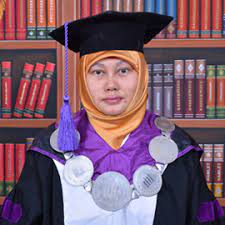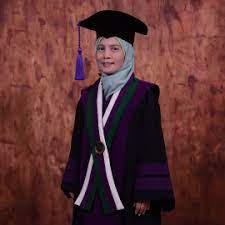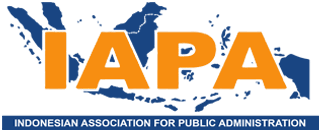RUANG PERTARUNGAN DAN STRATEGI AKTOR DI ARENA EKONOMI POLITIK LOKAL
DOI:
https://doi.org/10.30997/jsh.v2i2.96Abstract
When decentralization policy applied, almost often actors with different in background and identity compete for local political-economic sources. In this competition, among actor do clash and applying any strategy in order for winning the clash and establishing actor power. In this case, proposed question were what factors create actor clash space under local political-economic arenas did? Who were and how did the clash happen among the actors under local political-economic arenas? And then, how the clash strategy implemented by the actors in order for winning the clash happened under local political-economic arena was? In order for answering the all questions; the study used a qualitative methodology of non-positivistic paradigm under a structuralism- constructivism perspective approach. Study analysis unit was actor located at Kendari, South-East Sulawesi. Data were collected by in-depth interview, structured interview, and Focus Group Discussion (FGD) applied to the actor with different ethnics (Tolaki, Muna, Buton, dan Bugis) and professions (politicians, bureaucrats, academicians, and NGO activists). Results of the study revealed that in order for recognizing the clash, it was important that the actor practices at local political-economic arena be understood. There were three known actor practices, namely, practices in ethnic power culture, practices in organizing identity economic, and practices in identity politics. Thus, there were three arena spaces of the actors as followed: (1) clash space for symbol of economic power, (2) clash space for symbol of political power, and (3) clash space for political- economic powers. In such strategy involved in reproduction symbol, investment symbol, reproduction expression, alliance development, economic invasion, expression support, symbol infiltration, power invasion, and symbol support.
References
Bourdieu P and Loic JD Wacquant. 1992. An
Invitation to Reflexive Sociology. The Univer- sity of Chichago Press. Chicago.
Calhoun C. 1993. Habitus, Field, and Capital: The
Question of Historical Specifity. Pp. 72. Furnivall JS. 2009. Hindia Belanda: Studi
tentang Ekonomi Majemuk. Freedom Insti- tute. Jakarta.
Granovetter M and Swedberg R. 1992. The
Sociology of Economic Life. Westview Press,
San Francisco, USA.
Hardiman FB. 2009. Demokrasi Deliberatif.
Penerbit Kanisius. Yogyakarta
Maunati Y. 2004. Identitas Dayak: Komodifikasi
dan Politik Kebudayaan. LKIS. Yogyakarta
Mutahir A. 2011. Intelektual Kolektif Pierre
Bourdieu: Sebuah Gerakan untuk Melawan
Dominasi. Kreasi Wacana. Yogyakarta. Hlm.
Nordholt HS dan Klinken [ed.]. 2007. Politik
Lokal di Indonesia. Yayasan Obor Indonesia. Jakarta.
Rusdiarti SR. 2004. Bahasa, Kapital Simbolik dan Pertarungan Kekuasaan: Tinjauan Filsa-
fat Sosial Pierre Bourdieu tentang Bahasa. Tesis Pascasarjana. Departemen Filsafat FIB
[tidak dipublikasikan]. Depok. Hlm. 57-60
Swedberg R. 1998. Max Weber and the Idea of
Economic Sociology. Princeton University
Press. New Jersey, USA:
Tadjoeddin MZ. 2002. Anatomi Kekerasan Sosial
dalam Konteks Transisi: Kasus Indonesia
-2001. United Nations Support Facility
for Indonesian Recovery (UNSFIR). Jakarta. Wacquant, Loïc JD. 2002. From Slavery to Mass
Incarceration: Rethinking the “Race Ques- tion†in the US. New Left Review 13: 41-60.

















